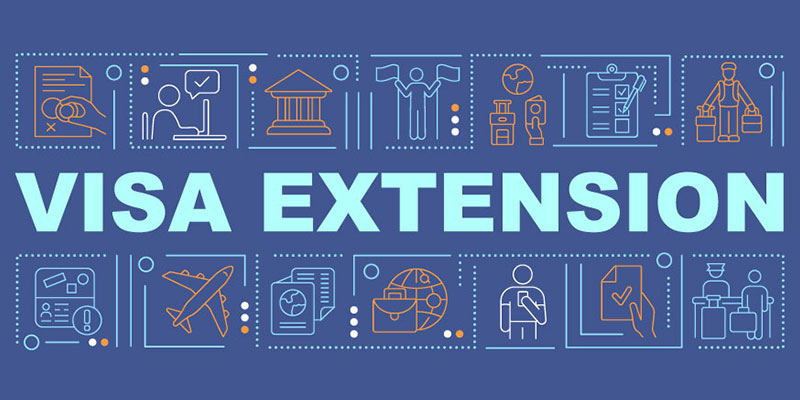
In this blog, we have explained in detail the following topics under the H1B Extension:
The H1B visa opens the gateway for foreign nationals to live and work in the US for a total period of six years. Issued by the United States Citizenship and Immigration Services, the H1B visa is valid for three years. All H1B holders who wish to remain in the US must apply for an H1B Visa Extension to ensure their H1B status is valid for another three years. Without an Extension, the USCIS will revoke or terminate the H1B visa, upon which the H1B holder must vacate the country.
Why is the H1B visa Extension so important? Obtaining an H1B visa is no walk in the park. Generally, it is an expensive, time-consuming, unpredictable, and tedious process, which demonstrates the value of the visa. Most H1B holders wish to remain in the US and pursue greener pastures in their careers or, even better, settle in the US as permanent residents. For all these dreams to come true, you need an H1B Extension. But, first things first: What happens to your H1B visa status after six years? Let's find out.
" How long can H1B be extended?" is an often asked question. When your H1B status attains its six-year completion, you are termed an "Alien." According to the USCIS regulations, all "aliens" must leave the country for at least a year before reapplying for a new H1B visa. Does that mean there is no option for you to remain in the US after six years? Fortunately, there is.
The American Competitiveness in the Twenty-First Century Act allows you to extend your stay in the US beyond six years based on two scenarios:
Scenario 1:
Annual Extension is possible if you have filed for your Labor Certification Application (LCA) or a Form I-140 petition one year before reaching the six-year limitation, provided the petition is not denied. As long as the immigration process continues, there is no upper limit to the length of the Extension.
Scenario 2:
Extension in three-year intervals is possible if your I-140 petition is approved and the immigration visa number is not available due to visa number retrogression. Also, there is no need for a 365-day requirement.
Beyond these two scenarios, if you wish to legally remain in the US beyond six years, you should apply for your Green Card. However, there is a high demand for Green Cards, not to mention the demand for job-based visas, per-country limit, and annual cap limit. Due to these reasons, there is a huge backlog of employer applications for H1B foreign employees whose six-year stay is about to expire.
In such cases, the USCIS provides three options:
All of the above options are possible if your sponsoring employer's Form I-140, PERM application, and the application to adjust the petitioner's permanent resident request are still pending.
Premium Processing for H1B Extension
Similar to the original H1B visa process, the Premium Processing option is also available for H1B Extension. Under Premium Processing, you can expedite the H1B Extension process, which will be completed within 15 calendar days. Premium Processing is a paid option, where you can pay the fee if your employer refuses to do so. As per the regulations, the USCIS will refund the fee if it does not complete the process within the stipulated time, and your petition will be processed normally.
There is a long list of documents that both H1B employers and H1B holders must submit to the USCIS to process their extension petitions.
List for H1B Employees:
To demonstrate your Evidence of Employment, you need:
List For H1B Employers:
Also Read: The Detailed Handbook for H1B Visa Extension
The American Competitiveness in the Twenty-First Century Act and AC 21 106 (a) allows the H1 B Visa to be renewed beyond the six-year maximum. According to Section AC 21 104 C, the following conditions must be met for the H1 Visa holder to renew their visa:
Until your Green Card is approved or denied, you are permitted to remain in the US and extend your H1B status unlimited times. Moreover, your spouse can obtain the H4 status by:
Who is Exempt For H1B Six-Year Limit?
Your H1B status can be indefinitely extended if your employer can prove that your presence in the US falls under the categories:
What Should you do if Your Extension is Denied?
Sometimes, the USCIS will deny your Extension petition if it is not satisfied with the submitted petition and documents. In that case, you can:
Fortunately, the USCIS will give you an explanation for denying the extension petition. At the same time, they will also note that no appeal can be made to a third party concerning the decision.
Six years isn't long, especially if you live and work in the US. If you wish to extend your stay, you ought to be aware of the processes so that your Extension is seamless and hassle-free. You do not want to be caught unawares without a valid H1B status and forced to leave the country.
Do you wish to know more about the rules and regulations concerning H1B Extension after six years? Visit TechFetch H1B to gain more information about H1B Extension.
**Disclaimer: All H1B visa processing information is subject to change. Please refer to the USCIS website to get the latest updates.